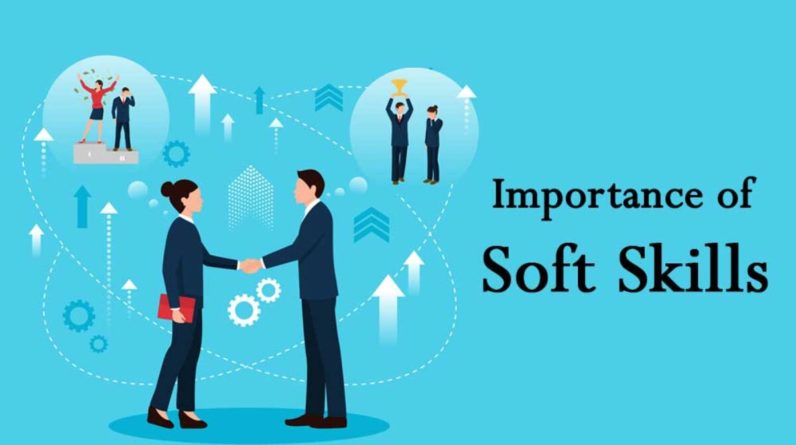
In today’s rapidly evolving professional landscape, soft skills have become essential to success. While hard skills can be taught and measured, soft skills like communication, teamwork, and leadership are more nuanced and harder to quantify. However, their impact on personal and organizational success cannot be overstated. This article delves deep into the importance of these key soft skills, providing a comprehensive understanding of why they are critical and how they can be developed and harnessed effectively.
The Power of Effective Communication
Communication is the cornerstone of any successful relationship, whether professional or personal. Effective communication involves not only the exchange of information but also the ability to listen, interpret, and respond appropriately.
Clear and Concise Messaging
Clear and concise communication is crucial in the workplace. It ensures that everyone understands their roles, responsibilities, and the objectives they need to achieve. Misunderstandings due to poor communication can lead to errors, decreased productivity, and even conflict.
Active Listening
Active listening is an integral part of effective communication. It involves fully concentrating, understanding, responding, and then remembering what is being said. Active listening helps in building trust and respect among colleagues, fostering a collaborative work environment.
Non-Verbal Communication
Non-verbal cues, such as body language, facial expressions, and tone of voice, play a significant role in communication. Being aware of these can enhance interpersonal interactions and prevent misinterpretations.
The Essence of Teamwork
Teamwork is the collaborative effort of a group to achieve a common goal. It is a fundamental aspect of modern work culture, where complex problems often require diverse skill sets and perspectives.
Collaboration and Cooperation
Successful teamwork hinges on effective collaboration and cooperation. Team members must be willing to share their knowledge, skills, and experiences to achieve collective success. This requires a culture of openness and mutual respect.
Conflict Resolution
Conflict is inevitable in any team. However, the ability to resolve conflicts constructively is what sets successful teams apart. Effective conflict resolution skills involve understanding different viewpoints, finding common ground, and working towards mutually beneficial solutions.
Diversity and Inclusion
Embracing diversity and fostering an inclusive environment can significantly enhance team performance. Diverse teams bring varied perspectives and ideas, leading to more innovative solutions and better decision-making.
Leadership: Guiding and Inspiring Others
Leadership is about guiding and inspiring others to achieve a common goal. Effective leaders possess a blend of various soft skills that enable them to influence and motivate their teams.
Vision and Strategic Thinking
A good leader has a clear vision and the ability to think strategically. They can see the big picture and set long-term goals, while also being able to navigate the complexities of day-to-day operations.
Empathy and Emotional Intelligence
Empathy and emotional intelligence are critical components of effective leadership. Leaders who understand and manage their own emotions, as well as those of others, can build stronger relationships and foster a supportive work environment.
Decision-Making and Problem-Solving
Leaders are often faced with difficult decisions and complex problems. Effective leaders possess strong decision-making and problem-solving skills, enabling them to make informed choices that benefit their teams and organizations.
Developing and Enhancing Soft Skills
Developing soft skills requires ongoing effort and practice. Here are some strategies to enhance your communication, teamwork, and leadership abilities:
Continuous Learning and Self-Improvement
Commit to continuous learning and self-improvement. This can involve attending workshops, reading books, and seeking feedback from peers and mentors.
Practice and Application
Practice makes perfect. Regularly apply your soft skills in various situations to hone them. This could be through group projects, volunteer work, or taking on leadership roles in your community.
Seek Feedback and Reflect
Seeking feedback from others and reflecting on your experiences can provide valuable insights into your strengths and areas for improvement. Use this feedback constructively to grow and develop your soft skills.
The Organizational Impact of Soft Skills
Organizations that prioritize the development of soft skills in their employees often see significant benefits. These include:
Increased Productivity and Efficiency
Employees with strong soft skills communicate better, collaborate more effectively, and are better equipped to resolve conflicts. This leads to increased productivity and efficiency.
Enhanced Employee Engagement and Retention
When employees feel heard, valued, and understood, they are more likely to be engaged and committed to their work. This, in turn, leads to higher retention rates and reduced turnover.
Improved Customer Satisfaction
Effective communication and teamwork also translate to better customer service. Employees who can communicate clearly and work well together are more likely to meet customer needs and exceed expectations.
Conclusion
In conclusion, soft skills such as communication, teamwork, and leadership are indispensable in today’s professional world. They not only enhance individual performance but also contribute to organizational success. By investing in the development of these skills, individuals and organizations can achieve greater productivity, innovation, and overall effectiveness.

Hi, I am John Smit a Captain in Fire Department City of Newyork with over years of experience in the field of Firefighting and HSE. My passion for fire safety started when I was a young boy and witnessed a neighbor’s house go up in flames along with precious lives. Since then, I had dedicated my life to ensuring the safety of buildings, properties, and individuals in case of a fire and medical emergencies.



